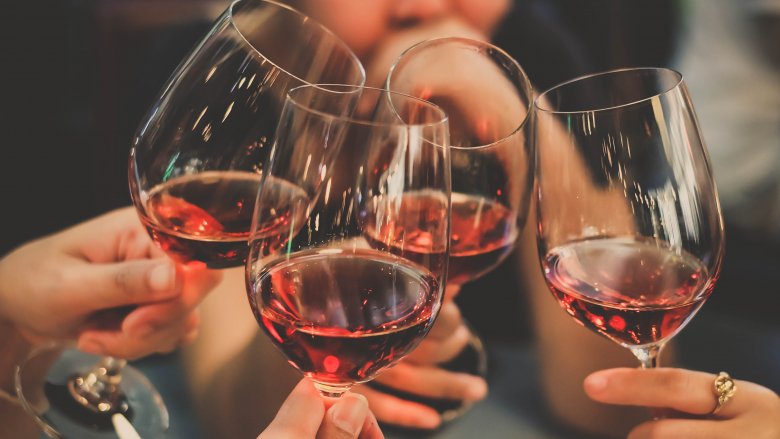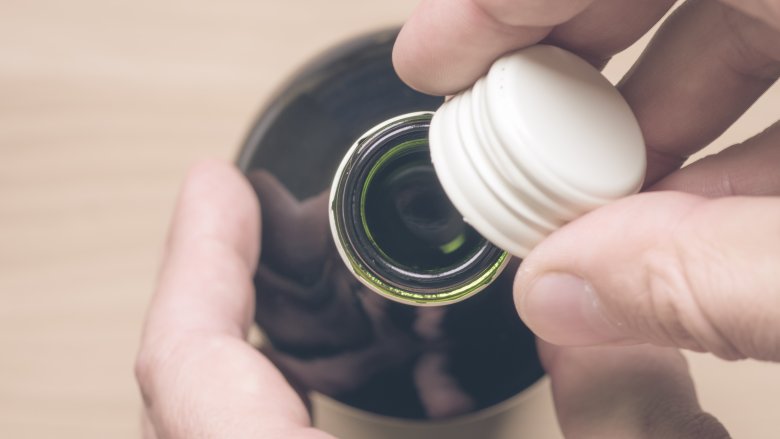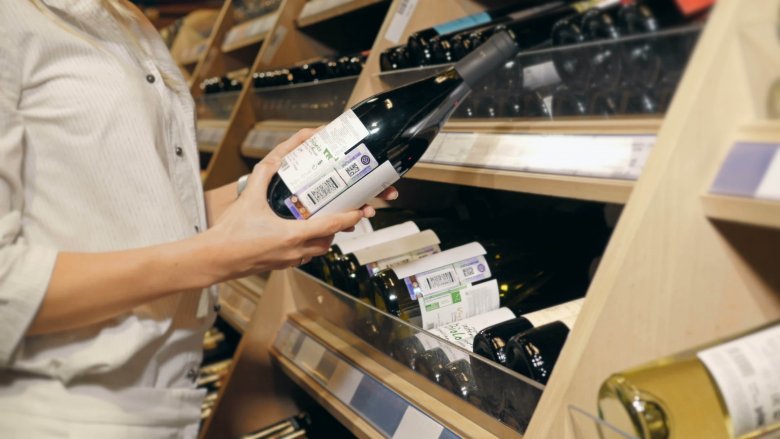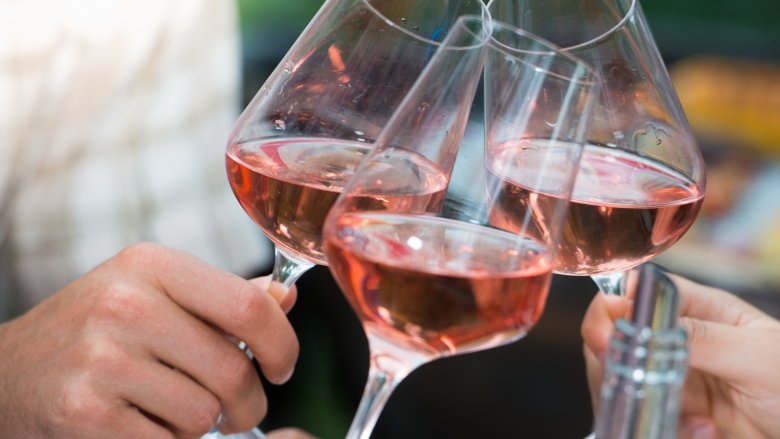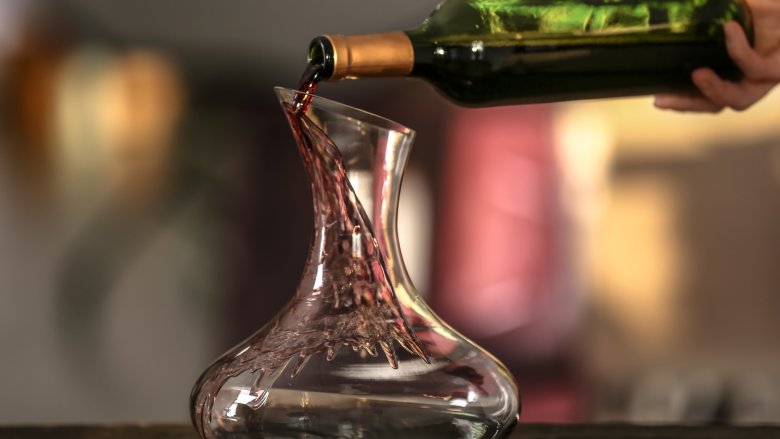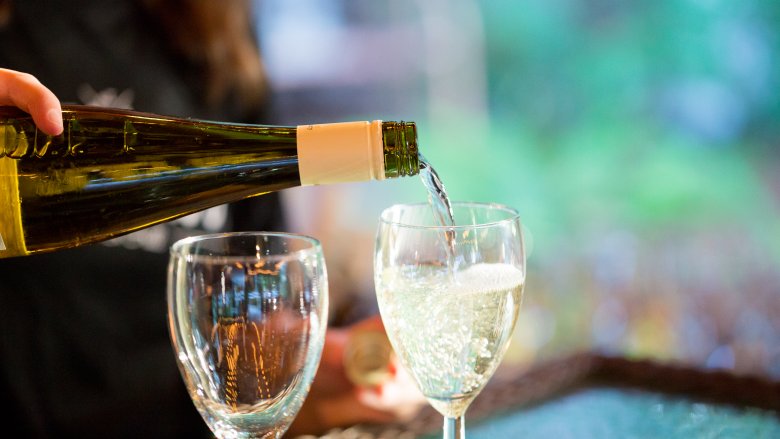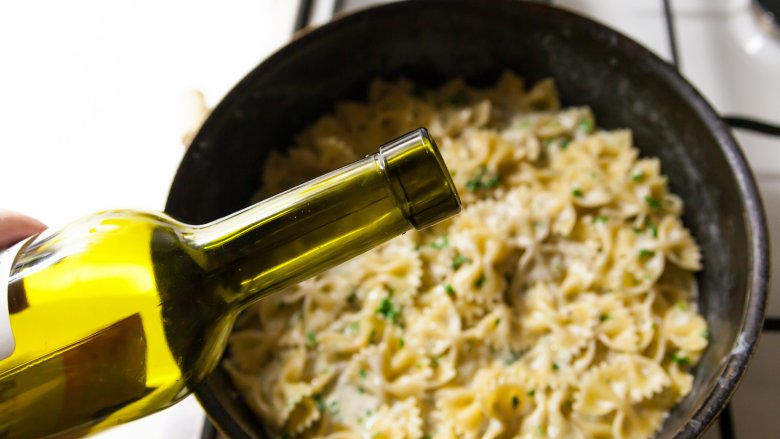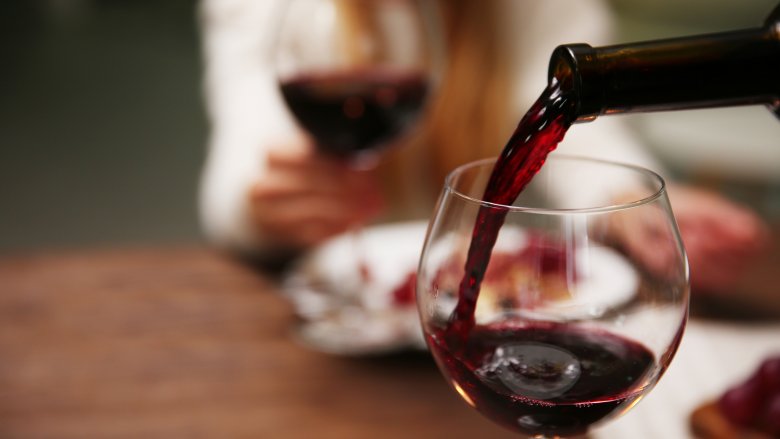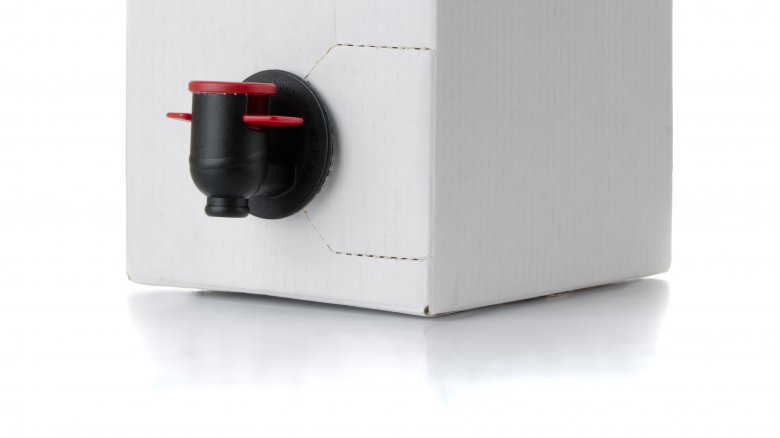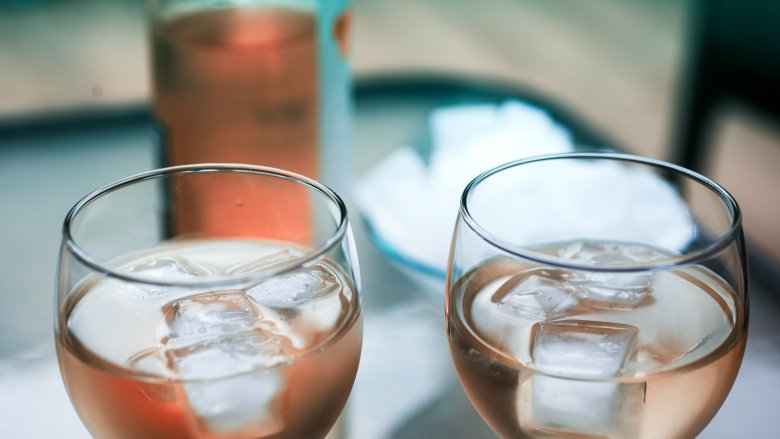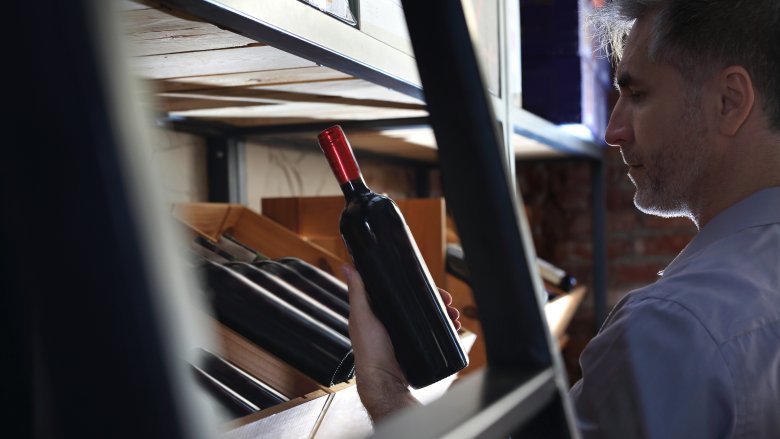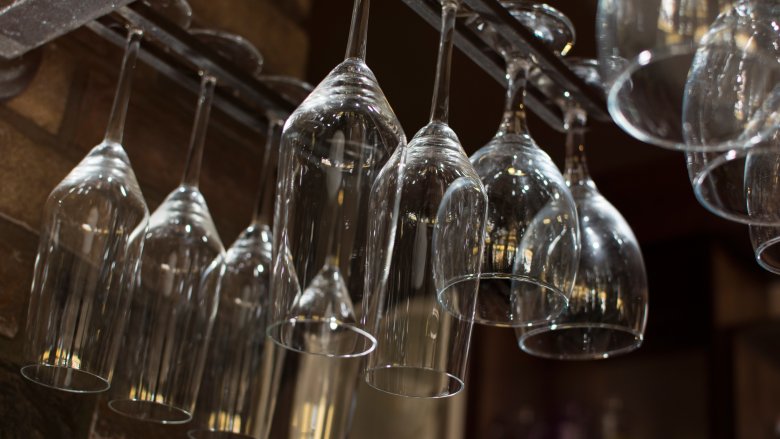Wine Rules You Should Break
Wine drinking and wine appreciation seem to have an awful lot of stringent rules that you're supposed to follow, which can make it a little bit intimidating. Some of those so-called rules, however, really don't need to be followed and, in fact, in some cases they're guidelines you should probably ignore. Whether you're a little bit apprehensive of going all-in with wine because you're not entirely sure what you're supposed to do and what you're not, or you have all of the wine rules down pat, nearly everyone could benefit from becoming a little bit more confident around wine. We're making it easy for you by rounding up all the wine rules you should stop paying attention to, pronto.
Only drink white wine with fish
More likely than not, if you're a wine drinker (or even if you're not), you've heard that you should always drink white wine with fish and most poultry, and red wine with red meat. So what's an exclusively red or white wine drinker to do? Well, as winemaker and wine educator Bénédicte Martre-Trocard told Condé Nast Traveler, some fish, like tuna, go quite well with red wine, meaning you don't have to be quite as stressed about strict pairing rules as you may have been before.
You can't drink champagne with food
While some people might think of champagne as a solely solitary drink, the way to begin a special meal or toast a celebratory event, there's no need to relegate champagne to before dinner or after. As Christian Stachel, former beverage director at Wright & Company in Detroit, told Vogue, sparkling wines can pair quite well with rich, fatty foods because the acid and bubbles will cut through some of that fat. Keep your champagne toasts and glasses with appetizers, but don't be afraid to give it a try with your main courses as well.
A screw top means bad wine
If you've shopped for wine more recently, you may have noticed that more and more bottles are screw top, rather than stopped with a cork. According to PureWow, a wine having a screw top doesn't mean it's a bad quality wine any more than a cork means the wine is good. Screw tops can prevent oxidation, which can ruin wine, and they can last longer than corks, which are costly and can deteriorate. Don't dismiss screw top wines out of hand. You just might find your new favorite.
You shouldn't chill red wine
You may have heard that you should never, ever serve red wine chilled, but that's not actually as strict a rule as you may have thought. According to The Kitchn, "cellar temperature" is cooler than what you might think. Some reds need that little bit of chill in order to taste as good as they possibly can — especially if that's how you like it. Don't ignore that.
You choose a wine based on ratings
Have you ever noticed the numbered ratings on wine tags at the liquor or grocery store? Have you ever purchased a bottle specifically because of the rating it received? You don't have to do that. As Business Insider noted, just because a wine has received a very high rating, doesn't mean you'll like it. What matters most is that you like the wine you buy and drink, not that some wine "experts" do. Buy a highly-rated bottle if you'd like, but don't expect it to be the best wine you've ever had simply because it's been rated highly.
You should only drink rosé during warm weather months
Rosé is the it wine of warm weather months, but you don't have to give it the cold shoulder when the weather outside starts to dip. As professional oenophile and wine director Bryan Flewelling told Food Network, darker rosés are often the perfect accompaniment to the heavier root vegetables, pasta, casseroles, tarts, and stews characteristic of colder weather. These darker rosés are more acidic and more tannic than their lighter-hued counterparts, meaning they pack a bit more of a punch than the made-for-spring rosé you drink when the weather is hotter outside.
Only decant heavier reds
You might think your decanter is only for those heavy, rich red wines, but that's simply not the case. As wine director Victoria James told Vogue, there are some white and sparkling wines you should try in the decanter as well. Fuller-bodied whites can survive the decanting process relatively well, especially if it's an oak-aged white, and champagne can be decanted too. James said that it's good that the decanter will warm up a full-bodied white wine a little bit, because that'll help with tasting all the complex flavors within the wine, whereas if you serve it ice-cold, directly from the fridge, some of those flavors will be masked and that's definitely not what you want.
The older the vintage, the better the wine
An older vintage doesn't necessarily mean the wine in the bottle is of a higher quality or will taste better than a younger, newer wine. According to Business Insider, many wines aren't made with the intention that they'll be aged, meaning they don't necessarily age as well as you may have thought they would. If you're not shelling out quite a bit of money for a given bottle, you probably shouldn't wait too long to drink it. If you do, you might, unfortunately, be disappointed.
Never cook with a wine you wouldn't drink
You've surely heard that you're never supposed to cook with any wine below the quality that you'd drink, but Flewelling told Food Network that the opposite is actually true. Drink the wine you like to drink and really enjoy it. Cook with wine that you didn't pay a ton for — the alcohol will cook off and the flavor will add complexity to whatever you're cooking. Flewelling suggested that you consider what kinds of flavors are in a given wine when considering if it'll be good to cook with because that's all that'll be left after the alcohol flavor cooks away.
Order the cheapest wine on the menu
Ordering the cheapest wine on the menu means you'll, more often than not, pay more for the quality of wine that you're getting than you would for other options on the list. Flewelling told Food Network that that's oftentimes where the highest mark-up is (the cheapest and second cheapest options). Instead, work with the sommelier or other wine pro to help you figure out what the best wine is in your price range. Don't just make an arbitrary decision based on price, region, varietal, or name.
Never hold a wine glass by the bowl
According to Business Insider, the premise behind this rule is that the warmth from your hands will warm the wine too much and make it not as palatable when you drink it. First of all, it's unlikely that the flavor of the wine you're drinking will suffer from the warmth of your hands. Second of all, that means that you can't ever drink out of a stemless wine glass and that's just silly — they're great.
Wine should only come in a bottle
It used to be that if you wanted good wine, you needed to buy it in a bottle, but that's no longer true. Now, you can buy relatively good wines in boxes, cans, and even on tap. You can buy wine in larger or smaller quantities than a typical-sized bottle. Not only that, but some of your favorite winemakers could also be making boxed or canned wine. You can get good wine affordably and not have to sacrifice much at all.
Don't put ice in wine
The idea behind the rule not to put ice in your wine is that it will then melt and water down the wine. As The Kitchn noted, it allows you to chill a glass of wine nearly immediately so that you can drink it sooner than if you had to chill it in the refrigerator or the freezer. Not only that, but if you like drinking wine with ice in it, then there's no real reason why you should follow set guidelines about wine drinking that make it less enjoyable for you. Again, it all comes back to drinking what you like to drink how you like to drink it.
You have to know wine to appreciate wine
Contrary to some popular opinions, you can appreciate wine just because you like to drink it and really taste what you're drinking. You don't have to be an exhaustive walking, talking wine encyclopedia in order to appreciate wine. According to Menuism (via HuffPost), it's more important that you try a lot of different things and know what you like when it comes to wine and what you don't, instead of focusing on knowing all the different varietals, wine-making regions, and all your usual wine vocabulary words. Appreciate what you like because it's what you like and leave it at that.
You have to use the right glass
You may have noticed that different wines are served in different wine glasses. While those are great for restaurants, it just doesn't make sense for you to have ten different sets of wine glasses at home. You'll have to store them, clean them, make sure you always have the right glass for the right wine that you're pouring that particular night, and there's just honestly no need. Have a favorite shaped glass? Drink your wine out of that, no matter what wine you're drinking. Want to just drink out of a tumbler or juice glass? Go for it. It doesn't matter what anyone else thinks.
